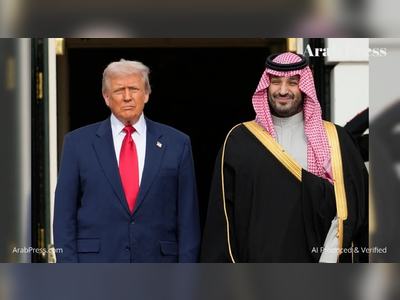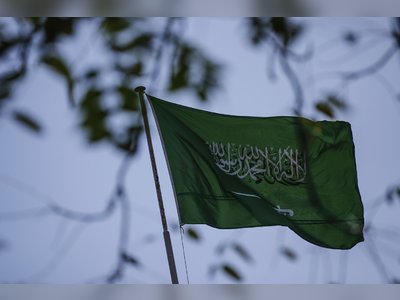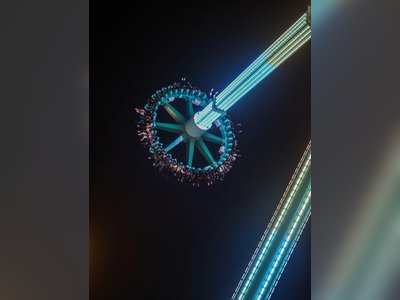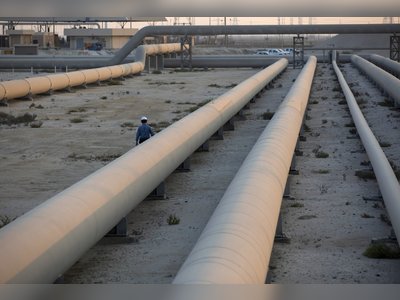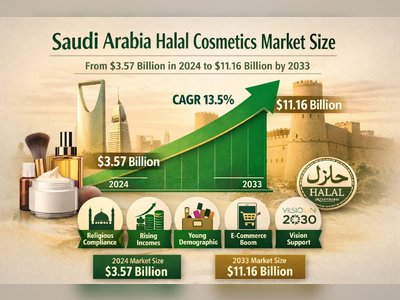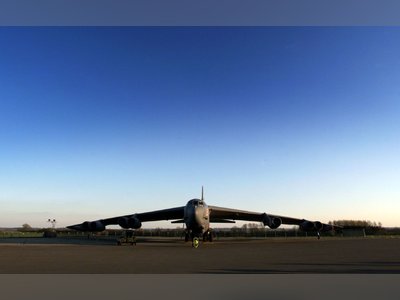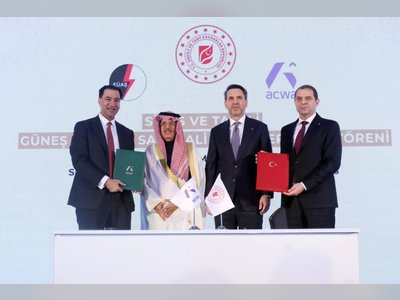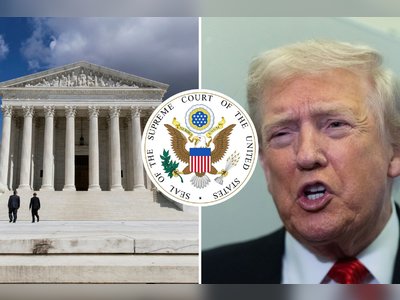
Saudi Arabia, GCC taking holistic, far-sighted approach to city building, expert says
“It’s all about how can you create a terrific sense of being in a city and having a great experience,” said Daniel Hajjar, managing principal for Europe and the Middle East at HOK — a global architecture and engineering firm.
“Particularly in Saudi Arabia, you’re seeing a lot more use of those types of facilities, because there’s a lot more encouragement to sort of knock down both physical and figurative walls within the Kingdom. And I think that’s a very good thing, as it’s only a matter of time before you will begin to see, and you’re already seeing it, much more engagement from Saudis in their own country,” he told Arab News in a recent exclusive interview.
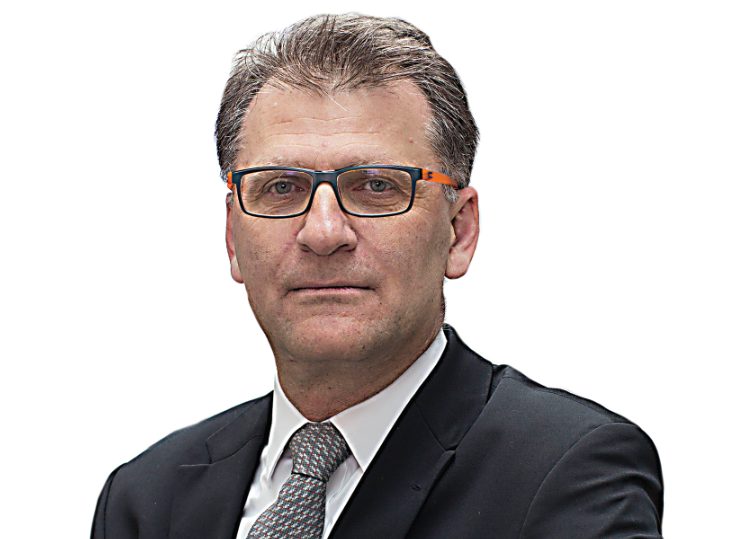
The US-based firm, which was founded in 1955 in Missouri, began to officially expand its footprint in the Middle East in the early 1980s, and the first major project where the company brought a lot of its talent to complex designs was in Saudi Arabia. It was King Khalid Airport, King Saud University and King Fahd University of Petroleum and Minerals in Dhahran that changed the way it operated as a firm, Hajjar explained.
“Those were sort of the first two institutes of higher education within the Kingdom that really propelled Saudi on the international stage that they began developing this fundamental infrastructure, and as a result, HOK was instrumental in delivering that, as well as the airport,” he said.
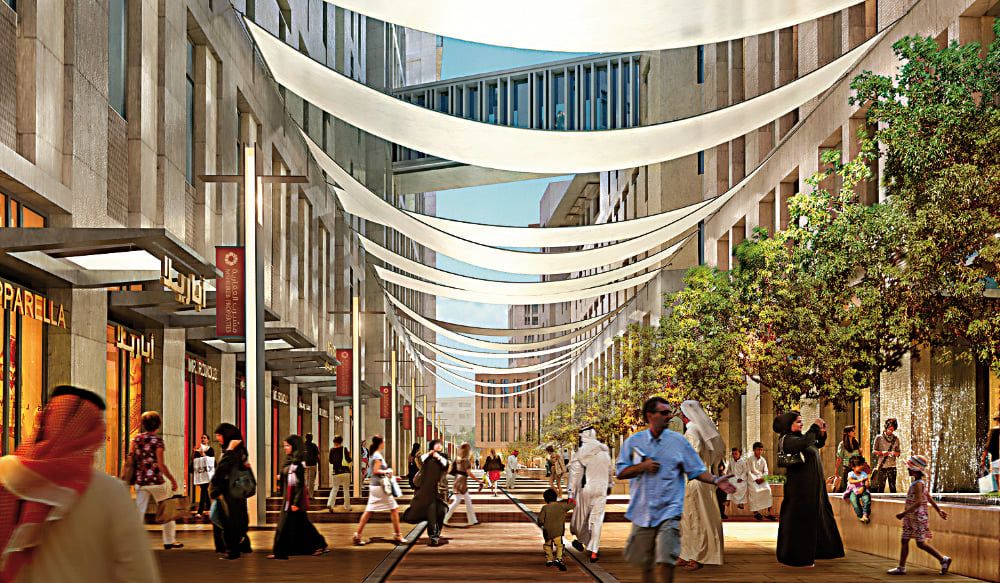 Cities mature when they begin introducing large-scale infrastructure
projects that help people live in it, and a decade in terms of the
city’s life is not a very long time at all, Daniel Hajjar said.
Cities mature when they begin introducing large-scale infrastructure
projects that help people live in it, and a decade in terms of the
city’s life is not a very long time at all, Daniel Hajjar said.
The company also developed other high-profile projects, among them King Abdullah University of Science and Technology and King Abdullah Petroleum Studies and Research Center in Saudi Arabia. Others included the National Assembly building and the Central Bank headquarters in Kuwait, Abu Dhabi National Oil Company corporate headquarters, Dubai Marina, and the masterplan for Dubai Expo 2020.
Hajjar said that the Kingdom’s projects have always challenged the company to develop the way they work, and have invested heavily in technology to deliver massive and complex Lead in Energy and Environmental Design Platinum projects within months, and the first of their kind in the region.
Focus on future generations
Saudi Vision 2030 “is incredibly ambitious, and because of that, it raises the bar significantly in terms of what is it that’s going to drive that economy, post-oil, or post-hydrocarbon, because that is going to happen, and this diversification of the economy,” he said.
“Those master plans that are being done now are not necessarily for the generation today, but they’re for future generations to use, and master plans, by their very nature change and evolve over time. So as a result, we believe that setting a framework in place where you have the ability to engage people along the journey is incredibly important, because … they’re part of that evolution (and) it is part of their genetic DNA, if you will, but within the country,” Hajjar said.
When designing projects, Hajjar said it was important to ensure they had cultural or physical relevance, and to interpret natural and heritage aspects into a modern form.
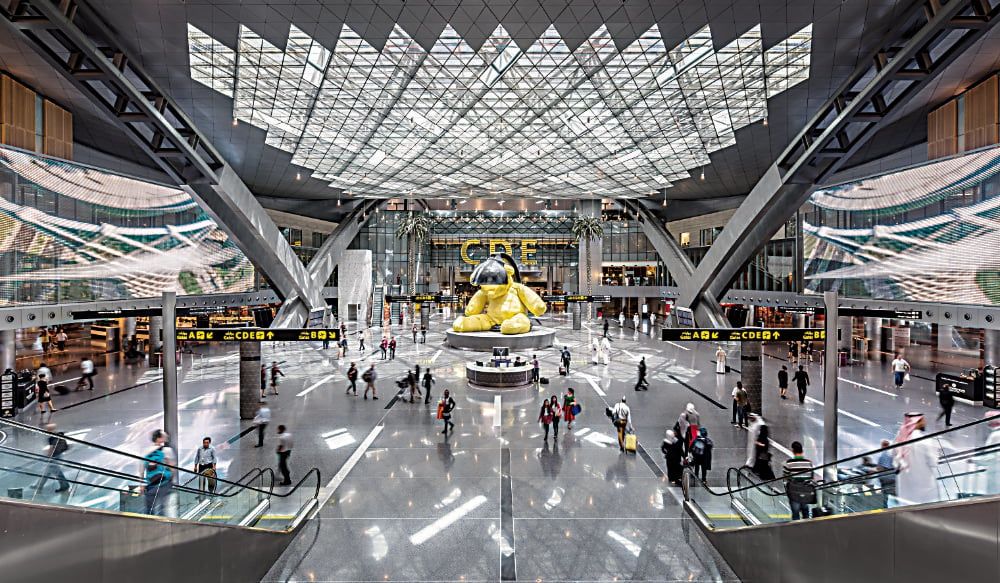 Cities mature when they begin introducing large-scale infrastructure
projects that help people live in it, and a decade in terms of the
city’s life is not a very long time at all, Daniel Hajjar said.
Cities mature when they begin introducing large-scale infrastructure
projects that help people live in it, and a decade in terms of the
city’s life is not a very long time at all, Daniel Hajjar said.
“A lot of the architecture that is being produced, within Riyadh and perhaps within the Najd area in particular, this whole aspect of Salmani architecture or Salmani expression, seeking an expression that is genuine for the region, as opposed to looking at something in a pastiche manner.
“So as a result, you’re beginning to see much more authentic architecture, without copying the past, and look at a modern interpretation of those historic principles behind the architecture has a tremendously valuable proposition.”
Comparing Riyadh and Jeddah, he said that they were two totally different cities because they grew based on different parameters when they were established.
“If you look at Jeddah and the way the Al-Balad part of Jeddah has sort of grown out further from the original port, and then if you look at Riyadh as being the capital of the Kingdom, very much different in terms of the approach to city building between the two of them, and it doesn’t mean that one’s necessarily better than the other.
“Because there wasn’t as much of an economic boom in Jeddah, it sort of boomed and then it slowed down and then they didn’t simply just build. I think Riyadh now is looking at the various initiatives, in terms of greening Riyadh, public art, and creating that level of richness, while Jeddah has had international art exhibits along the Corniche,” he said.
These also differ from new developments such as the NEOM megacity project or Diriyah Gate, which is the birthplace of the first Saudi state and now everything is leveraging off that historic core as they begin to build out from there, he said.
The big challenge with Saudi Arabia is it is so geographically diverse from one region to the next, so how do you begin bringing those cultures together within the Kingdom and ensure “the richness that occurs in one region should be introduced to the richness from another in order to create this fantastic mosaic that is the Kingdom of Saudi Arabia,” he said.
Another major challenge is the future of transportation, and there will be a strong focus on linking cities together within the Kingdom and the Gulf region and cutting down on air travel carbon footprint.
“The irony behind all of this is pre-World War I, there was a railway in the Kingdom, and now there is no railway. So I think you’re going to begin seeing a lot of that, particularly GCC-wide (and) it’s going to serve the function of transporting commodities and everything else, but at the same time, they have the ability to encourage people to travel by rail and I think that will come,” he said.
Cities mature when they begin introducing large-scale infrastructure projects that help people live in it, and a decade in terms of the city’s life is not a very long time at all, Hajjar said, as the Vision 2030 target ambitions rapidly approach.
“Ultimately, a city has a continuum to it,” he said, “because when a city stops to develop and stops challenging itself, it slowly begins to lose meaning to people within the city. You have to continually reinvent the city, bring new things into the city, and have people engaged in different ways.”
